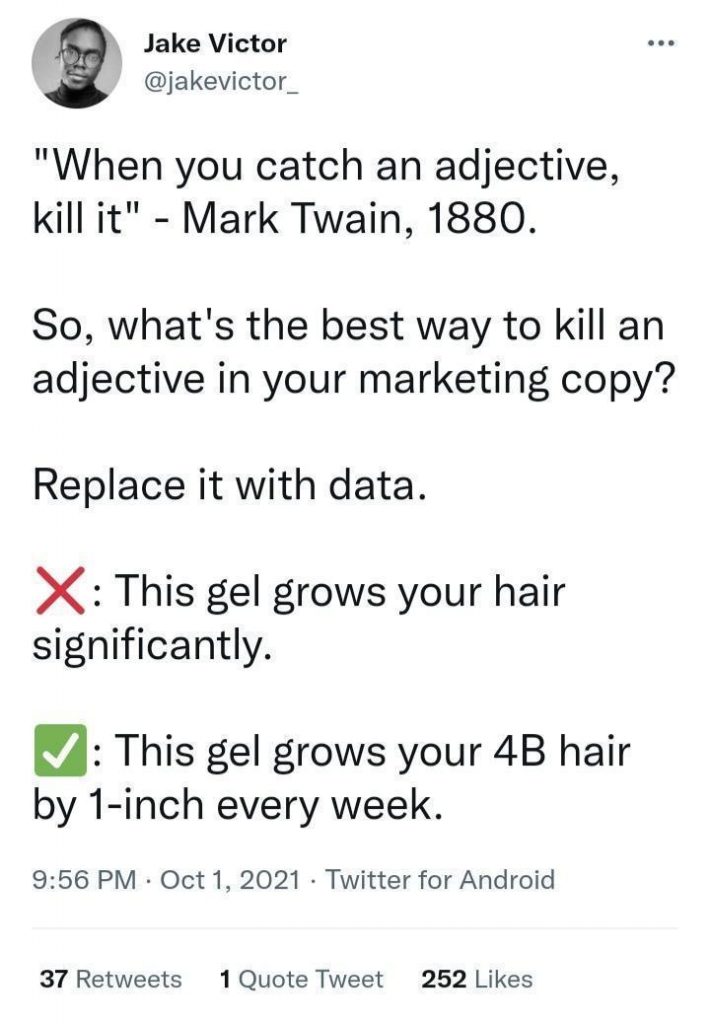

With all the technological advances, we are now more connected than ever and are bombarded with messages whether we’re conscious of it or not. So, how can you ensure that your message will be heard in the noise? The answer is simple – by being smart about it.
Here are some common writing mistakes and what you can do to fix them

#1 Not caring about the reader
One of the biggest content writing mistakes we make unconsciously is not empathizing with the readers.
Well, nobody has the time to read full-fledged web pages, blogs, or articles. And readers only read 28% of the content on a web page, based on a study by nngroup.
It’s a cost-benefit analysis for them. How much effort do they need to put into each website, and what benefit will they get?
But, you can avoid these content mistakes by asking yourself these questions before and after writing:
- Who are you writing for?
- Why do they care?
- What’s the one core message you want to deliver?
- Is the text easy to scan?
- Is the text easy to read and grasp?
- Can your reader take action right after reading the text?
- Does it solve any of their problems?

#3 Not Adding Enough Meat
We can quickly elaborate on a point. But do you use enough data to back up your claims? Do you provide clarity on each section of your content? Can your reader take action after reading your points?
Here’s a paragraph from a random blog on how to optimize your LinkedIn profile:
Do you get the answer, “how do I write a proper and on-point headline?” Or what does it means by a “creative and descriptive headline?”
The writer could do better by adding some examples and providing additional resources for reference. Furthermore, adding some research materials is a powerful way to instill trust among your readers.
But, here’s the point:
Where can you find the meat to put into your writing? Let me give you some references:
- Use Google books on the topics
- Use Google scholar or PubMed search engines to find studies on the topic
- Type: your keyword site:.edu or .org or .gov (ex: seafood consumption site:.edu); for credible sites,
- Search for “state of” reports or Statista or “keyword + stats” for statistics
- Create a swipe file for screenshots of quotes and essential resources
- Ask for industry experts to quote on the topic you are writing
And remember to show not to tell

3. A proper and on-point headline
If you are to build a strong personal brand on LinkedIn to get opportunities from there, its necessary to be creative and descriptive with your headline. Your headline should be catchy and clearly define your expertise including relevant keywords.
Also don’t just stick with one headline all the time, keep switching between various interesting headlines to be creative and get the eyes of all the recruiters.
#4 Jumping from one idea to another
When you don’t have your thoughts organized, jumping from one idea to another is normal. Or, if we say it in Ann Handley’s fashion (the author of Everybody Writes), not having a writing GPS. And this is another error most content marketers make with their writing.
Having a process is crucial to keeping yourself on track. However, whether or not you should outline your content depends on the type of piece you are writing and your preference.
As the famous copywriter Henneke Duistermaat said, “Writing is often an iterative process of thinking, structuring, writing, and then rethinking, restructuring, and rewriting until your message becomes clear. Outlining and reverse-outlining facilitates this iterative process.”
In the case of long content pieces, outlining helps you to glide smoothly from one main idea to another. And when you don’t outline, you might need to spend more time on editing.
Also, using transition words like “however,” “thus,” and “therefore,” create a slippery slope between sentences.
Thus, to fix the flow in your writing, always ask yourself these questions:
- What’s the main idea of this paragraph?
- Does it connect me with the big picture of this article?
- Does this paragraph create a smooth connection with the above one?
Whatever doesn’t serve the purpose, slash it or organize where it fits better
#5 No grasp of bloated monsters
We all have seen wordy sentences with so many prepositions or articles used.
Here are a few examples of bloats the famous author William Zinsser added in his book On Writing Well:
at this point in time (lengthy) = now (shorter alternative)
a personal friend of mine = my friend
at the present time = at present
Keep a simple rule of thumb – If there’s a shorter way of saying something, just do it. Here’s an excellent article from Copyblogger on exercises to write short and crisp sentences for your practice.
#6 Overusing adverbs
“Ditch the adverbs” is the most common advice from famous writers. Still, it’s one of our most common content mistakes while writing.
According to the famous author Stephen King, using adverbs is a sign of weakness in your writing. When you use an adverb, you feel afraid to express yourself completely.
And that ultimately makes sense as we use adverbs (most words with -ly at the end) to describe a process. Have you ever caught a scene full of adverbs in a Novel?
Creative writers use strong verbs or sensory words to make the reader feel the scene.
Here’s an example by Jake Victor of how you can do it with your marketing copy:

#7 Trying to look important
You can find such content writing mistakes on the about us page of some websites. Companies love to brag about their excellence through buzzwords like “outstanding,” “state-of-the-art,” “superior,” “best,” etc.
Some try to bury their mistakes under complex words.
David Ogilvy once said “The customer is not a moron. She’s your wife”
So, while writing something about your company, don’t assume the audience will not catch the real intent. The annals of social media history are filled with examples of brands making dumb statements and appearing tone deaf.
It is always smart to specify how you are the best if you want to drive home the point. Be authentic. Be honest.
“Better writing comes from that place of goodness. It means using the right words, choosing real words, and avoiding the temptation of buzzwords.”
~ Ann Handley
#8 Not fighting the modifiers
Wrong words or phrases can completely alter the meaning of a sentence. And those words are called modifiers.
Let’s take an example of a modifier:
Having finished the book reading, the hamster got attention.
As the dangling phrase “having finished the book reading” modifies the subject “the hamster,” rather than a human with reading ability, we call it a dangling modifier.
#9 Using Weakling verbs
Pick only strong words If you want to sound compelling.
Here are a few lines from The Raven by Edger Allen Poe,
“Over many a quaint and curious volume of forgotten lore—
While I nodded, nearly napping, suddenly there came a tapping,
As of someone gently rapping, rapping at my chamber door.
“Tis some visitor,” I muttered, “tapping at my chamber door—
Only this and nothing more.”
Sensory! Isn’t it? You can picture the scene clearly.
Let’s see how we replace weakling verbs in the examples below :
Mary quickly ran to the office.
Mary rushed to the office.
Cherry is a lover of country living.
Cherry treasures country living.
You can see that changing the weakling verbs into strong verbs also removes the clutter.
#10 Telling the obvious
Do you always state “in this article,” “in this post,” and “in the sense that” before explaining the main pointers?
But it’s not a mistake. Sometimes it can work. But, if you are ruthless and see what’s creating fat in your writing, these statements (often called meta-statements) don’t add much value – cut them or rewrite the sentence to make it sharper.
Final Words

Good content can play a big part in turning site visitors into customers.
So, here’s a quick recap on some ways you can make your content work harder.
- Keep the reader in mind before writing
- Avoid jargon or industry vocabulary as much as possible
- Research well and add the meat
- Have a connection between sentences and paragraphs
- Remove unnecessary words from sentences
- Avoid unnecessary adverbs
- Simplify and specify
- Detect the modifiers
- Replace weak verbs with strong ones
- Avoid meta-statements.
Ready to get content that works for you? We can help